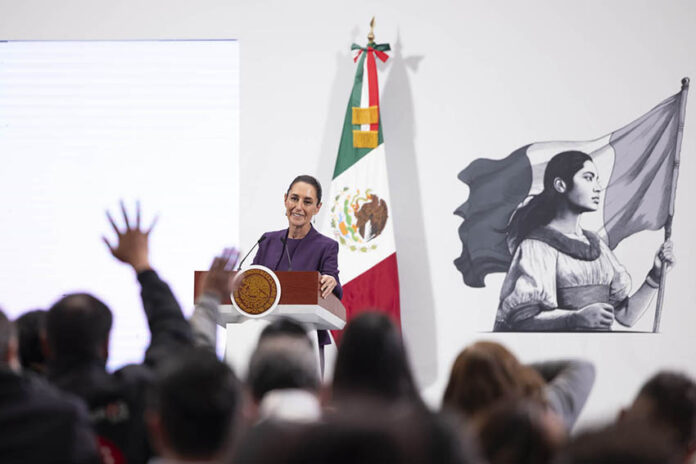Much of President Claudia Sheinbaum’s Thursday morning press conference was taken up by investment announcements from four Mexican pharmaceutical companies.
Later in the press conference, the United States government’s “Big Beautiful Bill” and the legal case of Sinaloa Cartel leader Ovidio Guzmán were among the topics that were discussed.
Will the ‘Big Beautiful Bill’ affect nearshoring in Mexico?
A reporter noted that the “Big Beautiful Bill,” which was approved by the U.S. House of Representatives on Thursday, will provide large tax incentives for large companies, making the U.S. a more attractive place for them to invest.
“Could this affect us in nearshoring, in investment in Mexico? the reporter asked.
Economy Minister Marcelo Ebrard fielded the question.
“I would say two things briefly about that possibility,” he said.
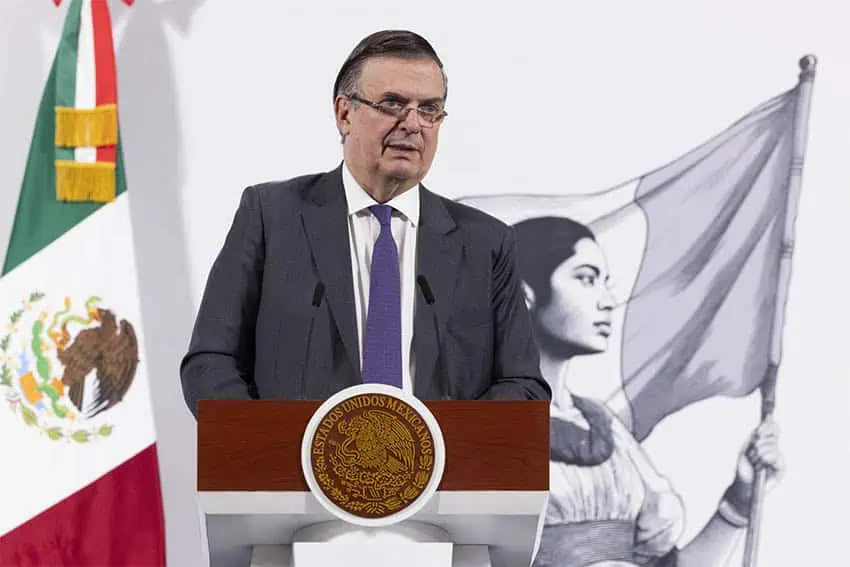
“Firstly, it’s too early [to tell]. … We have to evaluate how [the law] will be applied,” Ebrard said.
“But the main idea you raise is: Does the reduction of tax costs on profits in the United States mean that companies will relocate to that country? I would say, well, in accounting terms it could happen, but what matters here is production — that is what is your cost in terms of relative productivity between one country and another?” he said.
Ebrard said that Mexico has a range of “very important advantages” that allows it to be competitive when it comes to attracting investment.
He cited “our productivity,” Mexico’s proximity to the United States and various “logistical advantages.”
“… In production we’re very competitive,” Ebrard said.
He subsequently said that “a system of comparative disadvantages” is being created because “every country” will have to pay a different tariff rate to ship their goods to the United States.
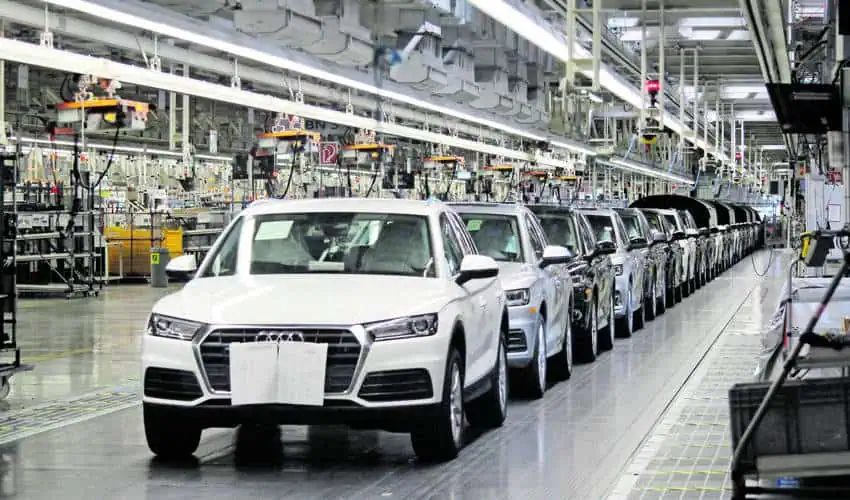
Ebrard noted that the United States has reached a trade deal with Vietnam and asserted that Mexico will have “a 6-to-1 advantage” over the Southeast Asian nation when it comings to exporting to the U.S.
“… Why 6 to 1? Because the average of what was announced yesterday means that for products from Vietnam — which is a competitor of ours — entering the U.S. market will cost them an average [tariff] percentage between 35% and 40%, while for us it will cost an average of 6%,” he said.
Ebrard didn’t specify how he arrived at the 35%-40% tariff figure for Vietnam, which will face a 20% tariff on its exports to the United States and 40% if the goods are transshipped from a third country.
Mexico has a free trade agreement with the United States (and Canada), but Mexican steel, aluminum, cars and goods not covered by the USMCA currently face tariffs when entering the U.S.
Ebrard said that the “system of comparative disadvantages” he spoke about is “starting to be configured” given that the United States has reached new trade deals with Vietnam and the United Kingdom, but he noted that it remains to be seen how it will end up.
“But I’m using yesterday’s agreement [with Vietnam] as a base because it is the first agreement signed with a country with which the United States has a [trade] deficit,” he said.
“… So, [a] 6 to 1 [advantage for Mexico]. Therefore, the final balance is that our advantage will be accentuated, that’s what we are seeing. That’s why I think the [United States’] fiscal package will not affect us,” Ebrard said.
Sheinbaum turns the tables and asks reporters her own questions … about Ovidio Guzmán case
A reporter asked the president her opinion about the case of Ovidio Guzmán López, who, according to court documents filed on Tuesday, intends to plead guilty to drug trafficking charges in the United States.
Guzmán, one of the sons of imprisoned drug lord Joaquín “El Chapo” Guzmán and a leader (or ex-leader) of the “Los Chapitos” faction of the Sinaloa Cartel, is scheduled to attend a plea hearing next Wednesday.
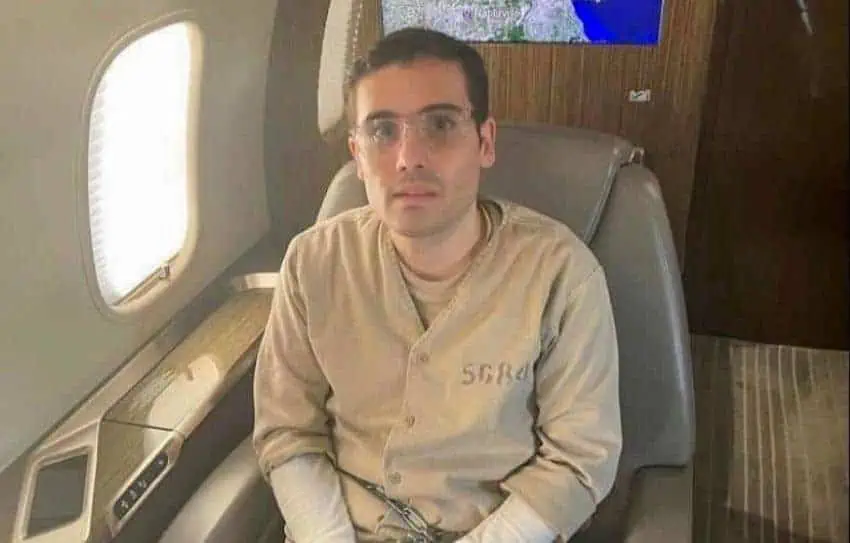
He was extradited to the United States in September 2023 after he was captured in Culiacán, Sinaloa, in January of that year. Jeffrey Lichtman, lawyer for Guzmán López, said in May that his client and the U.S. government had not yet reached a final plea deal, “but hope to in the future.”
That deal has now apparently been reached.
After describing the reporter’s inquiry about the Guzmán case as “a good question,” Sheinbaum declared that she was going to ask a few questions of her own.
“How did the United States government designate organized crime organizations in Mexico?” she asked.
“As terrorists,” came the response from reporters.
“What has the United States government said with relation to terrorist organizations?” Sheinbaum asked.
“That it doesn’t negotiate with terrorists,” a reporter responded.
“And what is it doing?” Sheinbaum asked.
“Negotiating with terrorists,” responded members of the press corps.
Sheinbaum nodded in response, having made a pointed criticism of the United States government via her back-and-forth with reporters.
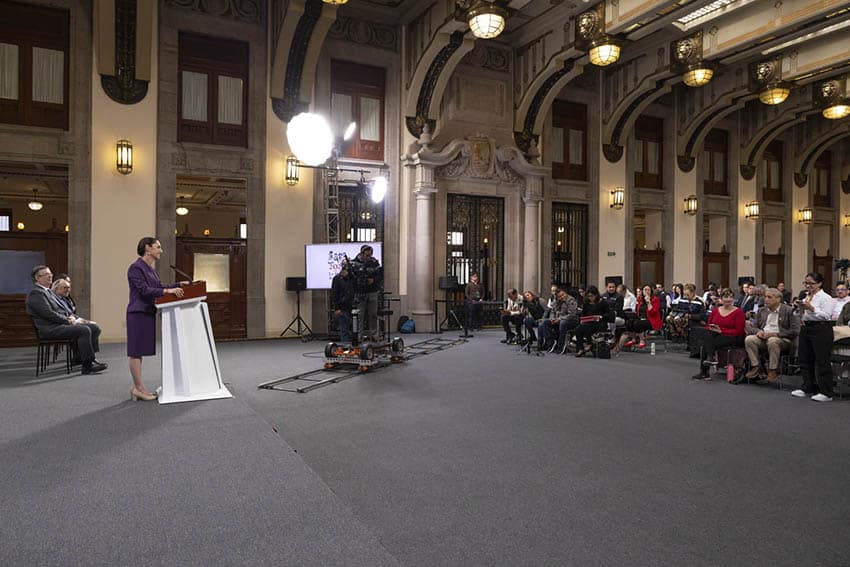
She subsequently noted that soldiers were killed as a result of the operation to detain Guzmán, and asserted that given that the suspect was extradited to the United States there should be “coordination” between U.S. authorities and the Federal Attorney General’s Office in Mexico.
Her insinuation was that such coordination has been lacking in the case of Ovidio Guzmán López, whose brother, Joaquín Guzmán López, is also in U.S. custody following his arrest last year after he flew into a small airport in New Mexico on a private plane with Sinaloa Cartel leader Ismael “El Mayo” Zambada.
By Mexico News Daily chief staff writer Peter Davies ([email protected])
